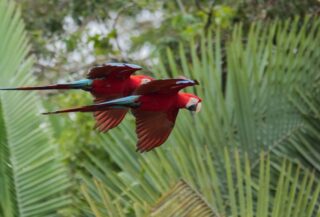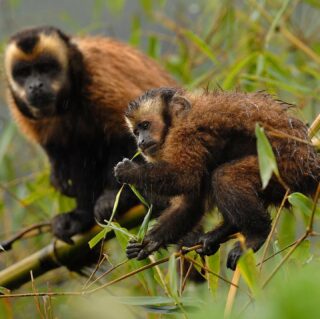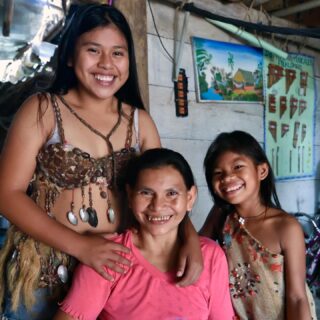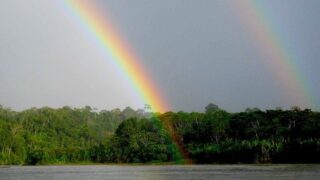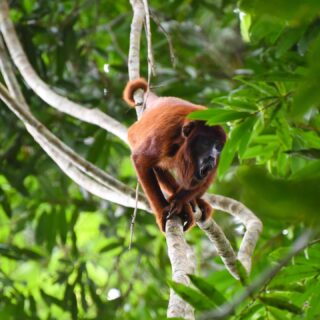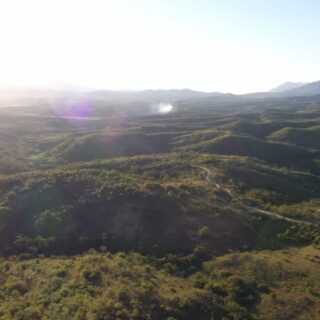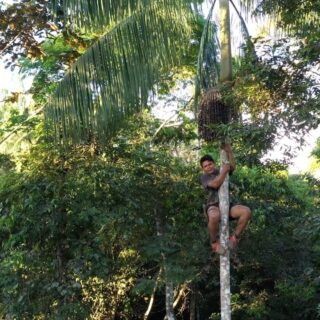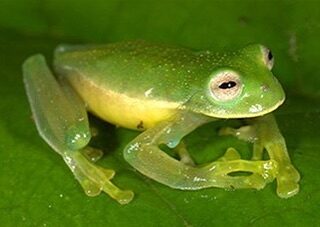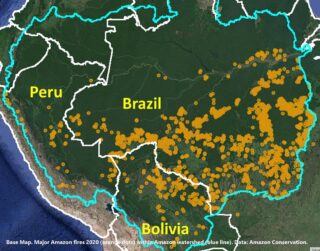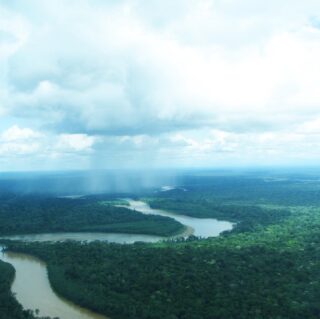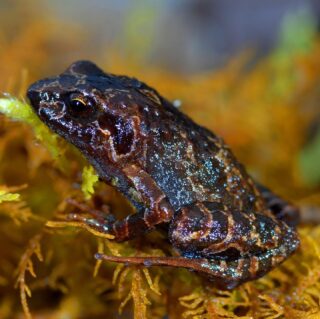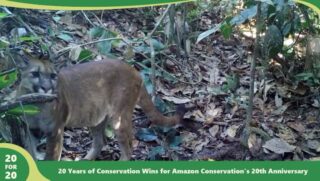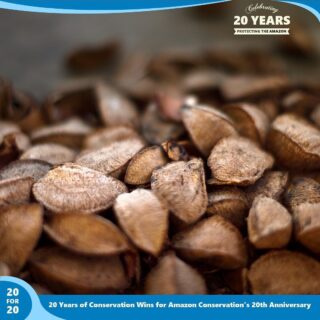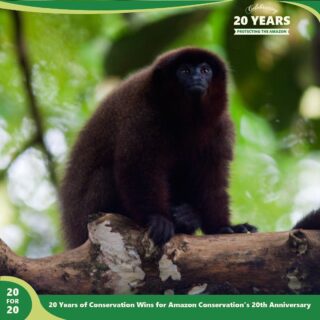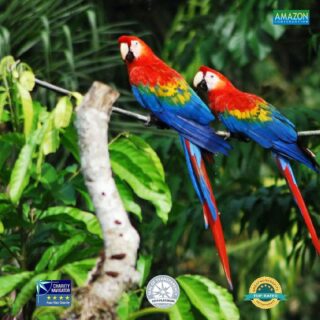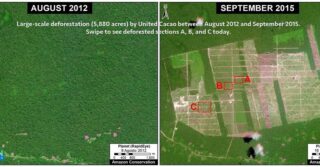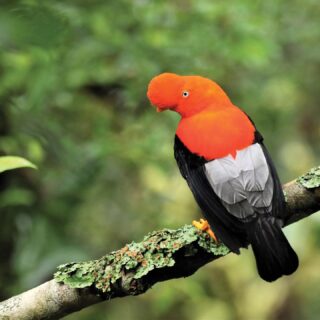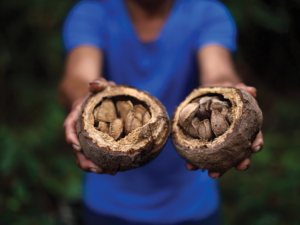 For the past year our team in Bolivia and Peru have been working with EUROCLIMA+, an initiative of the European Commission focused on combating climate change in Latin America. We are working with local communities to pilot climate change resilience in their sustainable use of forest resources.
For the past year our team in Bolivia and Peru have been working with EUROCLIMA+, an initiative of the European Commission focused on combating climate change in Latin America. We are working with local communities to pilot climate change resilience in their sustainable use of forest resources.
Promoting sustainable forest resources is important for keeping forests standing, and an initiative that we have been expanding for many years now. The Amazon rainforest is full of economically valuable products, such as the Brazil nuts and açaí berries, which are important sources of income for local communities. These fruits can only grow in standing forests, and cannot survive in a monoculture or farmed operation setting.
An Economic Essential
Luis Arteaga, our Technical Director i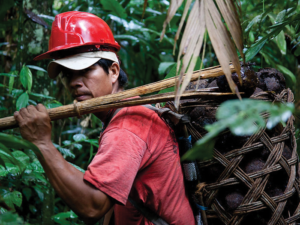 n Bolivia, coordinates this project. His team works in the northern part of Bolivia, where local communities heavily depend on these forest goods to make a living. “Almost all the families dedicate themselves to harvesting forest fruits, mainly the Brazil nut, which is their main economic activity.”
n Bolivia, coordinates this project. His team works in the northern part of Bolivia, where local communities heavily depend on these forest goods to make a living. “Almost all the families dedicate themselves to harvesting forest fruits, mainly the Brazil nut, which is their main economic activity.”
Noting the ecological makeup of the area, one can see why: the northern municipality of the Santa Rosa del Ábuna conservation area has the highest concentration of Brazil nut trees in the department of Pando, Bolivia. These nuts generate up to 90% of local families’ overall income, and although harvesting is a job that requires a lot of dedication and back-breaking work, it generates important opportunities for commercialization and sustainable forest management. Luis puts it simply, “If Brazil nuts didn’t exist or didn’t grow in these forests, they would have already been cut down for another economic activity.”
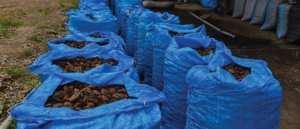 Tying the importance of conservation of these forests not only to climate change but also to economic sustainability of local and global economies is vital for countries and communities to see the value of forests. In fact, our area of work in Bolivia holds 85% of the Brazil nut production in the world, and keeping those forests standing through sustainable activities will have a significant impact in the fight against deforestation and carbon emissions.
Tying the importance of conservation of these forests not only to climate change but also to economic sustainability of local and global economies is vital for countries and communities to see the value of forests. In fact, our area of work in Bolivia holds 85% of the Brazil nut production in the world, and keeping those forests standing through sustainable activities will have a significant impact in the fight against deforestation and carbon emissions.
Confronting Climate Change
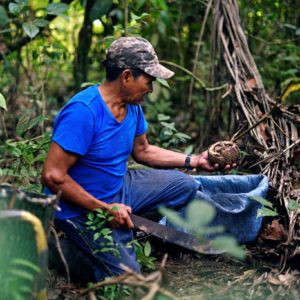 A key aspect of our work with EUROCLIMA+ is recognizing how these sustainable forest economies help mitigate the effects of climate change on communities and on the planet, which hadn’t previously been as much on peoples’ minds. This pilot work is also helping local communities become aware of how climate is changing the forests on which they depend, so they can plan for their long-term, sustainable use, without needing to turn to destructive practices like timber extraction and cattle ranching if a harvesting season is affected by global warming. This involves not only making sure we have healthy forests, but also helping communities diversify their source of income sustainably, such as harvesting other complementary forest products like açaí berries and sustainably farming paiche fish.
A key aspect of our work with EUROCLIMA+ is recognizing how these sustainable forest economies help mitigate the effects of climate change on communities and on the planet, which hadn’t previously been as much on peoples’ minds. This pilot work is also helping local communities become aware of how climate is changing the forests on which they depend, so they can plan for their long-term, sustainable use, without needing to turn to destructive practices like timber extraction and cattle ranching if a harvesting season is affected by global warming. This involves not only making sure we have healthy forests, but also helping communities diversify their source of income sustainably, such as harvesting other complementary forest products like açaí berries and sustainably farming paiche fish.
“In my opinion,” Luis notes, “one important advancement is that we are learning how climate change has impacted, is impacting, and will impact this vital bi-national region of the Amazon in Peru and Bolivia. Working with EUROCLIMA+ has taught us to use the climate lens to think about all of our future conservation work as well, and this is a good step forward.”

